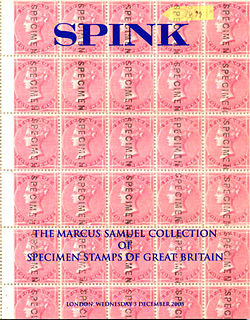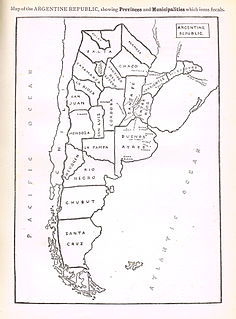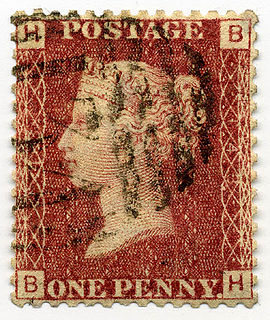
For postage stamps, separation is the means by which individual stamps are made easily detachable from each other.

A revenue stamp, tax stamp, duty stamp or fiscal stamp is a (usually) adhesive label used to collect taxes or fees on documents, tobacco, alcoholic drinks, drugs and medicines, playing cards, hunting licenses, firearm registration, and many other things. Typically businesses purchase the stamps from the government, and attach them to taxed items as part of putting the items on sale, or in the case of documents, as part of filling out the form.
The United States Stamp Society (USSS) is the largest philatelic organization dedicated to the research and study of United States postage and revenue stamps. The Society is a non-profit collector-based organization with a world-wide membership of over 1700. The USSS is Affiliate #150 of the American Philatelic Society (APS). Since 1930 the Society has encouraged philatelic study through voluntary membership in specialized committees. Some committees specialize in specific stamp issues like the Washington-Franklin heads, the Prexie or the Liberty Series, while other committees study specialized areas of U.S. philately such as Plate Numbers and Marginal Markings, Private Vending and Affixing Perforations, Booklets and Panes, and Luminescence. Research is made available through published books, research papers and articles in the monthly journal, The United States Specialist.

Walter Morley (1863-1936) was a pioneering English philatelist, stamp dealer and philatelic author.

Frederick John Melville was a British philatelist, prolific philatelic author and founder of The Junior Philatelic Society. He was also a founder in 1907 of the Philatelic Literature Society. Melville is a member of the American Philatelic Society's Hall of Fame and was a signatory to The Roll of Distinguished Philatelists in 1921.
Beverly Sedgwick King, of New York City, was an American architect, a partner with Mrs. Andrew Carnegie's brother, Henry D. Whitfield, in the firm Whitfield & King. He is now known primarily for his work as a philatelist who specialized in the collecting of, and writing philatelic literature on, United States postage stamps.
William Carlos Stone, called "Uncle Billy" by his friends, of Springfield, Massachusetts, was a philatelist who specialized in the collection of philatelic literature related to revenue stamps and postal stationery.
Dr. Emilio Diena, was an Italian philatelist who specialized in the postage stamps of Italy and published substantial research on the subject. He was probably the best known Continental philatelist of his generation.
Varro Eugene Tyler, of Auburn, Nebraska, was a professor of pharmacognosy and philatelist who specialized in the study of forged postage stamps and the forgers who created them.
Hiram Edmund Deats, of Flemington, New Jersey, was a philatelist especially acclaimed for his collection of revenue stamps.
Geoffrey Clive Akerman was an English philatelist. In 2001, Akerman and Gavin H. Fryer won the Crawford Medal from The Royal Philatelic Society London for their work "The Reform of the Post Office in the Victorian Era and Its Impact on Economic and Social Activity". He won numerous other awards for displays at stamp exhibitions. In 2009, Akerman won the Revenue Society Research Medal.
David Richard Beech MBE was the curator of the British Library Philatelic Collections from 1983–2013. He is a Fellow and past President of the Royal Philatelic Society London (RPSL). In 2013, it was announced that Beech will receive the Smithsonian Philatelic Achievement Award for outstanding lifetime accomplishments in the field of philately.
Richard McPherren Cabeen, of Chicago, Illinois, was well known philatelist in the Chicago area. He was one of philately’s foremost writers of philatelic literature.

The Fiscal Philatelic Society was an early twentieth-century British philatelic society that is seen as a predecessor to today's The Revenue Society. The principal object of the society was the study of fiscal stamps, or, as they are more usually called today, revenue stamps.

Marcus Francis Javier Samuel was a distinguished British philatelist who was an expert on the specimen stamps and revenue stamps of Britain and the British Commonwealth. He was a Fellow of the Royal Philatelic Society London.

Argentina has been one of the most prolific issuers of revenue stamps. Stamps have been issued by both the Argentine Republic and individual Argentine provinces and covered a wide range of duties from taxes on documents to hat taxes. The stamps form one of the most complex studies in revenue philately and have been exhaustively catalogued by Clive Ackerman in six volumes. However, new discoveries continue to be made.

Bolivia has issued revenue stamps since 1867.

Governing authorities in the Philippines have issued a variety of stamps for internal revenue taxes and other fiscal taxes since 1856. Prior to 1856, internal revenues were collected via stamped paper. Revenue stamps for the Philippines were issued by the Spanish East Indies government (1856–1898), the revolutionary government of the First Philippine Republic (1898–1901), the Insular Government of the United States (1901–1935), the government of the Commonwealth of the Philippines, the Philippine Executive Commission (1942–44) and the Republic of the Philippines (1946–present).










